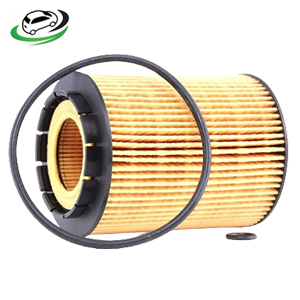-17%
Get Cabin Filter Assy AUDI A3/8V1/8VA/8VS/VW Golf VII/Passat 3G2/3G5 / Seat Leon 5F1/5F5/5F8 Skoda 5Q0819653
A cabin filter, also known as an air cabin filter or cabin air filter, is an essential component of a vehicle’s HVAC (heating, ventilation, and air conditioning) system. Its primary function is to filter the air entering the cabin, ensuring that the air inside the vehicle is clean and free of contaminants. This guide provides a detailed overview of cabin filters, including their functions, types, benefits, symptoms of failure, and maintenance.
Functions of Cabin Filters
- Air Quality Improvement
- Dust and Pollen Removal: Cabin filters capture airborne particles such as dust, pollen, and dirt, preventing them from entering the cabin. This is particularly important for individuals with allergies or respiratory conditions.
- Pollutant Filtering: They also filter out pollutants and harmful substances like smog and exhaust fumes, contributing to a cleaner and healthier environment inside the vehicle.
- Odor Control
- Odor Absorption: Many cabin filters, especially activated carbon filters, have the ability to absorb unpleasant odors. This helps to keep the air inside the vehicle smelling fresh and free from unwanted smells.
- Protection of HVAC System
- Prevention of Contamination: By trapping debris and contaminants, cabin filters protect the HVAC system components from clogging and damage. This helps to maintain the efficiency and longevity of the system.
- Enhanced Comfort
- Improved Airflow: A clean cabin filter ensures optimal airflow through the HVAC system, maintaining consistent climate control and comfort inside the vehicle.
Types of Cabin Filters
- Particulate Cabin Filters
- Function: Designed to capture dust, pollen, and other large particles from the air.
- Construction: Typically made of paper or synthetic materials with a mesh-like structure to trap airborne particles.
- Activated Carbon Cabin Filters
- Function: In addition to filtering dust and pollen, these filters have activated carbon that absorbs odors and harmful gases.
- Construction: They have a layer of activated carbon impregnated in the filter media, which helps to neutralize unpleasant smells and improve air quality.
- HEPA Cabin Filters
- Function: High-Efficiency Particulate Air (HEPA) filters are designed to capture very small particles, including allergens, bacteria, and fine dust.
- Construction: Made from densely packed fibers that provide superior filtration compared to standard filters.
- Electrostatic Cabin Filters
- Function: Use electrostatic charges to attract and capture particles from the air.
- Construction: These filters use electrostatic forces to trap dust, pollen, and other particles, often resulting in enhanced filtration performance.
Benefits of Cabin Filters
- Healthier Air Quality
- Cabin filters improve the air quality inside the vehicle, reducing the risk of respiratory problems and allergies caused by airborne contaminants.
- Enhanced Comfort
- Clean cabin air contributes to a more comfortable and pleasant driving experience by eliminating unpleasant odors and ensuring consistent climate control.
- Protection for HVAC System
- By preventing debris and contaminants from entering the HVAC system, cabin filters help to extend the lifespan and efficiency of the system.
- Increased Vehicle Resale Value
- A well-maintained cabin air filter can contribute to better overall vehicle condition, potentially increasing its resale value.
Symptoms of a Failing Cabin Filter
- Reduced Airflow
- A clogged or dirty cabin filter can restrict airflow through the HVAC system, resulting in weak air circulation and reduced effectiveness of heating and cooling.
- Unpleasant Odors
- If the cabin filter is clogged or contaminated, it may allow unpleasant odors, such as mold or mildew, to enter the vehicle. This can result in a musty or stale smell inside the cabin.
- Increased Dust and Debris Inside the Cabin
- A failing cabin filter may allow more dust and debris to enter the cabin, leading to increased dust accumulation on interior surfaces.
- Frequent HVAC System Issues
- If the cabin filter is clogged, it can cause strain on the HVAC system, leading to frequent issues such as unusual noises, reduced cooling or heating performance, or even system failure.
- Allergy Symptoms
- If the filter is not effectively trapping allergens and pollen, occupants may experience increased allergy symptoms, such as sneezing, itchy eyes, or respiratory discomfort.
Maintenance and Replacement
- Regular Inspection
- Frequency: Cabin filters should be inspected regularly, typically every 12,000 to 15,000 miles, or as recommended by the vehicle manufacturer.
- Visual Check: A visual inspection can help identify if the filter is dirty or clogged and needs replacement.
- Replacement Interval
- Manufacturer’s Recommendations: Follow the vehicle manufacturer’s recommendations for cabin filter replacement intervals. This information can usually be found in the vehicle’s owner’s manual.
- Driving Conditions: In dusty or polluted environments, more frequent replacement may be necessary.
- DIY Replacement
- Access: Cabin filters are usually accessible from inside the vehicle, either behind the glove box or under the dashboard. Consult the vehicle’s manual for specific instructions.
- Procedure: Replace the old filter with a new one by following the manufacturer’s guidelines. Ensure that the new filter is installed correctly for optimal performance.
- Professional Service
- When to Seek Help: If you are unsure about inspecting or replacing the cabin filter yourself, or if you experience persistent issues, consider seeking professional service from a mechanic or dealership.
Follow us on Facebook for more parts.



